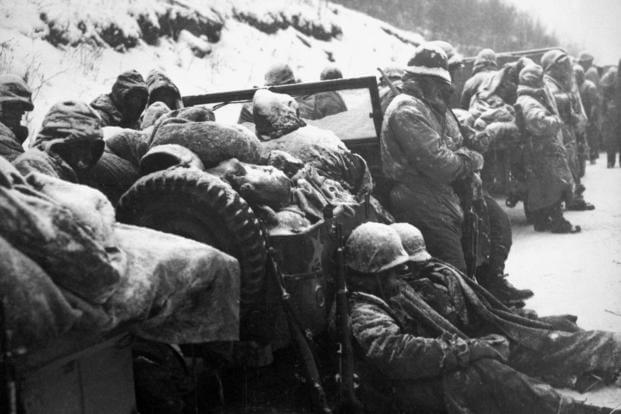On November 1st, the PBS documentary series American Experience premieres a powerful documentary called The Battle of Chosin, one of the most important and least known battles in U.S. military history. The program will air from 9-11pm ET in most cities but, as always with PBS, check your local listings and will be available to stream from the PBS apps and website. We've got a video clip from the program below.
On Thanksgiving Day 1950, most Americans believed that United Nations troops were cruising to an easy victory in North Korea and that most of the troops would be home by Christmas. No one understood that Mao Zedong would feel threatened by General Douglas MacArthur's attempt to invade North Korea all the way to the Chinese border and that he would decide to send troops into Korea to counter that threat.
On November 27, First Marine Division was strung out on a single 78-mile-long supply route leading to the Chosin Reservoir when the Chinese army attacked. They were surrounded, outnumbered and faced almost certain defeat. Marines and Army soldiers had to fight their way back to safety in brutal winter conditions
Veterans Talk About the Battle of Chosin
%embed1%
The documentary includes interviews with veterans who fought in the battle, men who've never been asked to tell their stories before now. Almost 3,000 Americans died in the battle and almost 13,000 were wounded (many by the extreme cold). There are estimates that China and North Korea lost 40,000 men.
Historian Bruce Cumings asserts that Chosin changed America's entire approach to the military and the Cold War: “What the December 1950 crisis did was to convince the American people that they had to spend a lot more money and make a lot more sacrifices in a Cold War that had turned hot in Korea and might turn hot some place else. As a result of that you had fundamental changes in American history. That built the national security state, built military bases abroad, a large standing army for the first time in U.S. history. And all of that transpired in December 1950 courtesy of the Chinese intervention.”




